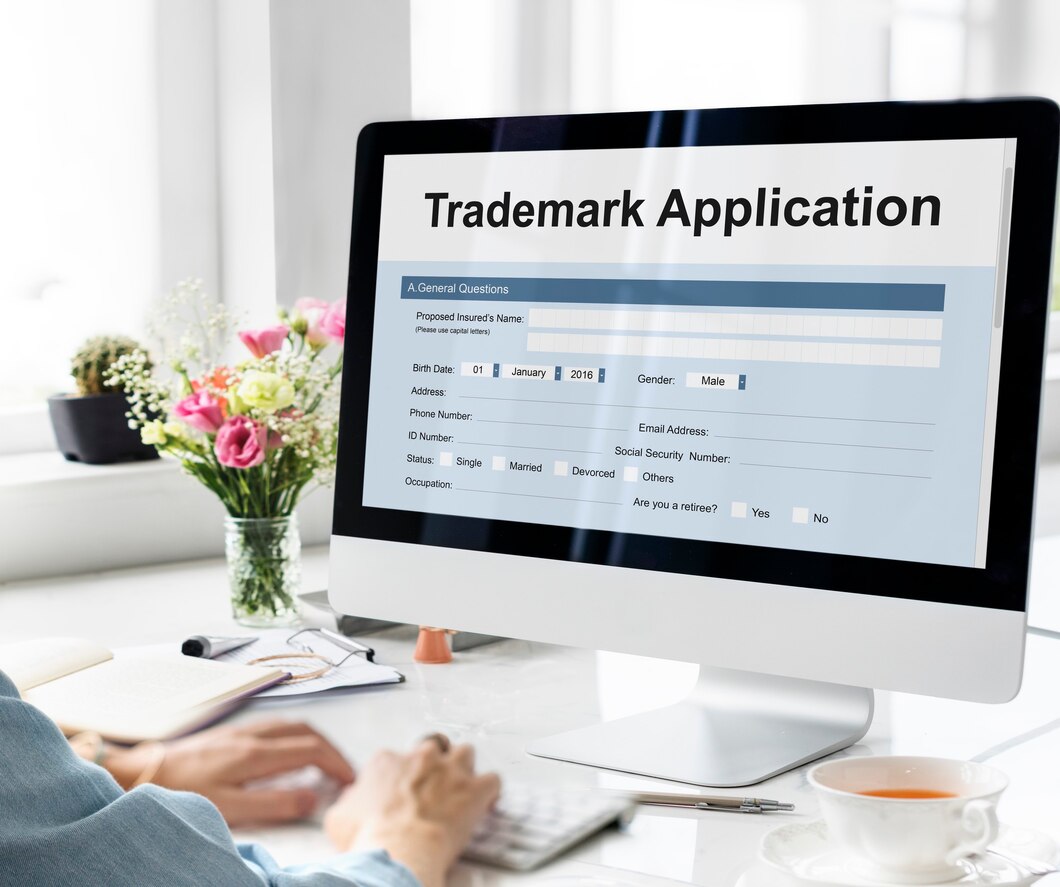Nowadays, a registered trademark has been becoming more and more important to enterprises when it can benefit the business in many ways and provide them a competitive and unique advantage against others. However, as for trademark registration in China, it has never been an easy deal for foreign enterprises who want to protect their trademarks in China, especially when it comes to a provisional refusal of trademark protection. This article aims to help you overcome the provisional refusal of the trademark in China that you may encounter during the process of trademark registration in China.

1. What is a provisional refusal in China?
For those who are not familiar with trademark registration, a provisional refusal is a notice sent to the trademark applicant from the trademark office of the designated country (in China, it would be the China National Intellectual Property Administration – CNIPA) to notify the trademark applicant that the applied-for trademark is going to be refused in the next few months.
The notice of provisional refusal will also give the trademark applicant the reasons for the upcoming refusal. There could be many grounds for a trademark being rejected for protection, such as absolute grounds (such as lack of distinctiveness, descriptiveness, genericness, etc.) or relative grounds (such as prior rights, well-known marks, etc.) or even based on an opposition filed by a third party against the applied-for trademark.
However, please bear in mind that it is only “provisional”, not an official refusal. It means that you still have a chance to overcome the provisional refusal and turn it into a successful trademark registration, provided that you have taken the necessary action mentioned in this article.
2. What cases will be subject to a provisional refusal in China?
As mentioned above, there could be tons of grounds for a trademark being rejected in China, out of which:
Absolute grounds: If a trademark is subject to a provisional refusal on the basis of absolute grounds, it means that such refused trademark is considered to be harmful to the national orders or the stability of the trademark registration system, such as violating the politics, economy, culture, morals, etc.,. Therefore, it will be prohibited from being registered as a trademark, and as the case may be, from using the trademark partially or wholly. Some possible cases that will be subject to a provisional refusal based on the absolute grounds in China are:
– The trademark is identical with or similar to State name, the national flag, emblem or anthem, the military flag, emblem or songs, or medals of the People’s Republic of China;
– The trademark is identical with or similar to the State name, national flag, national emblem or military flag etc., of a foreign country, except with the consent of the government of that country;
– The trademark is identical with or similar to the names, flag or symbols of international inter-governmental organizations, except with the consent of that organization or except where it is unlikely to mislead the public;
– The trademark is identical with or similar to an official mark or inspection stamp that indicates control and guarantee, except where authorized;
– The trademark is identical with or similar to the symbol or name of the Red Cross or the Red Crescent;
– The trademark is considered being detrimental to socialist morals or customs, or have other negative impacts under the CNIPA opinion;
– The trademark is deceptive and are likely to mislead the public in terms of the quality, place of production or other characteristics of the goods;
– The trademark is considered to lack distinctive features or being consisting of the generic information of the goods only or the shape determined by the nature of the goods.
Relative/opposition grounds: A trademark can also be refused on relative grounds where it is considered violating others’ legitimate rights. For example:
– The trademark is considered identical with or similar to conflicting trademarks registered for identical or similar goods/services;
– The trademark is considered identical with or similar to well-known trademarks, regardless of whether it is registered or unregistered;
– The trademark is identical with or similar to name right, portrait right, copyright, and unique name of well-known products.
3. What action needs to be taken when it comes to a provisional refusal of trademark in China?
A provisional refusal means that your trademark application has been rejected by the CNIPA for some reason, and you have a limited time to respond and appeal the decision. If you do not respond or appeal within the time limit, your trademark application will be deemed abandoned in China. Therefore, once you receive the provisional refusal, you need to take the following steps to overcome the provisional refusal:
a. Reach out to a local trademark agent:
The first thing we recommend you to do is to hire a local trademark agent. This can be attributed to the fact that only a local licensed agent is the one who is legally allowed to help you in filing a response to the CNIPA.
Furthermore, a local licensed agent is likely to have a good understanding / knowledge of their own country’s laws to against the provisional refusal from the CNIPA. Therefore, they can also help you analyze what causes your trademark to be refused by the CNIPA and set out a suitable strategy for you to make the response to the CNIPA.
For all the reasons above, it is undisputed that you should first reach out to a local licensed trademark agent. However, as usual, please make sure that you find a good-enough local agent. Otherwise, you may lose your money as well as your trademark.
b. Find out the reason for the refusal: Once you get your local trademark agent, you can ask them to explain the refusal grounds. However, to fully understand their explanation, you may need to be familiar with the IP knowledge/practice.
In our experience, you will get a higher chance to overcome the provisional refusal when the refusal grounds are the relative grounds as mentioned above. This is because the authority tends to have a stricter view towards trademarks subject to provisional refusal on absolute grounds due to concerns about the possibility of negative impacts of the mentioned trademarks on the stability of the trademark registration system and/or the national orders.
c. Prepare a response strategy: Like other steps, this step would be done by the local trademark agent that you hire to help you overcome the provisional refusal. Depending on your specific situation, your response strategy may include one or more of the followings:
– Submitting additional evidence to prove that your trademark is distinctive, well-known, or has acquired secondary meaning in China.
– Arguing that your trademark is not similar or identical to the conflicting trademarks and it would not cause any likelihood of confusion among consumers.
– Requesting a coexistence agreement or a letter of consent from the owner of the conflicting trademark, if possible.
– Modifying or limiting the scope of goods or services covered by your trademark application, if applicable.
– Challenging the validity of the conflicting trademark, if there are grounds to do so.
d. File a response to CNIPA: Upon your authorization, the local trademark agent will represent you in submitting the response letter to the CNIPA before the deadline.
e. Consider further appeal options: If you are dissatisfied with the final decision of the CNIPA, you can consider initiating a legal proceeding/appeal against the decision of the CNIPA under the laws of China.
4. Several notes for trademark owners in trademark registration in China
First and foremost, you should try to avoid being in this situation rather than finding a way to overcome this situation. Therefore, before applying for trademark registration in China, regardless of which way you apply, you should always conduct a trademark search to avoid any potential conflicts with existing trademarks in China. This will reduce the risks of receiving a provisional refusal significantly.
You may feel disappointed when receiving a provisional refusal of your trademark application. However, please bear in mind that:
– A provisional refusal is not an end for your trademark registration in China. You still have a chance to go against and overcome the provisional refusal by following the steps and guidance in this post.
– If you apply for trademark registration through an International Registration under Madrid System, then the provisional refusal will not affect the validity of your International Registration in other designated countries.
– Depending on your situation, you can find a suitable strategy to go against the provisional refusal. Please make sure that you find a good-enough trademark agent to help you find a good strategy.
– If you are not familiar with finding a reputable trademark agent in China or get in trouble for following any steps and guidance in this post, you can reach out to Apolat Legal. We have a strong network with reputable partners (IP-licensed trademark agents) in China and the world to help you deal with any issue arising from trademark registration.
Disclaimers:
This article is for general information purposes only and is not intended to provide any legal advice for any particular case. The legal provisions referenced in the content are in effect at the time of publication but may have expired at the time you read the content. We therefore advise that you always consult a professional consultant before applying any content.
For issues related to the content or intellectual property rights of the article, please email cs@apolatlegal.vn.
Apolat Legal is a law firm in Vietnam with experience and capacity to provide consulting services related to Intellectual Property Rights and contact our team of lawyers in Vietnam via email info@apolatlegal.com.



































